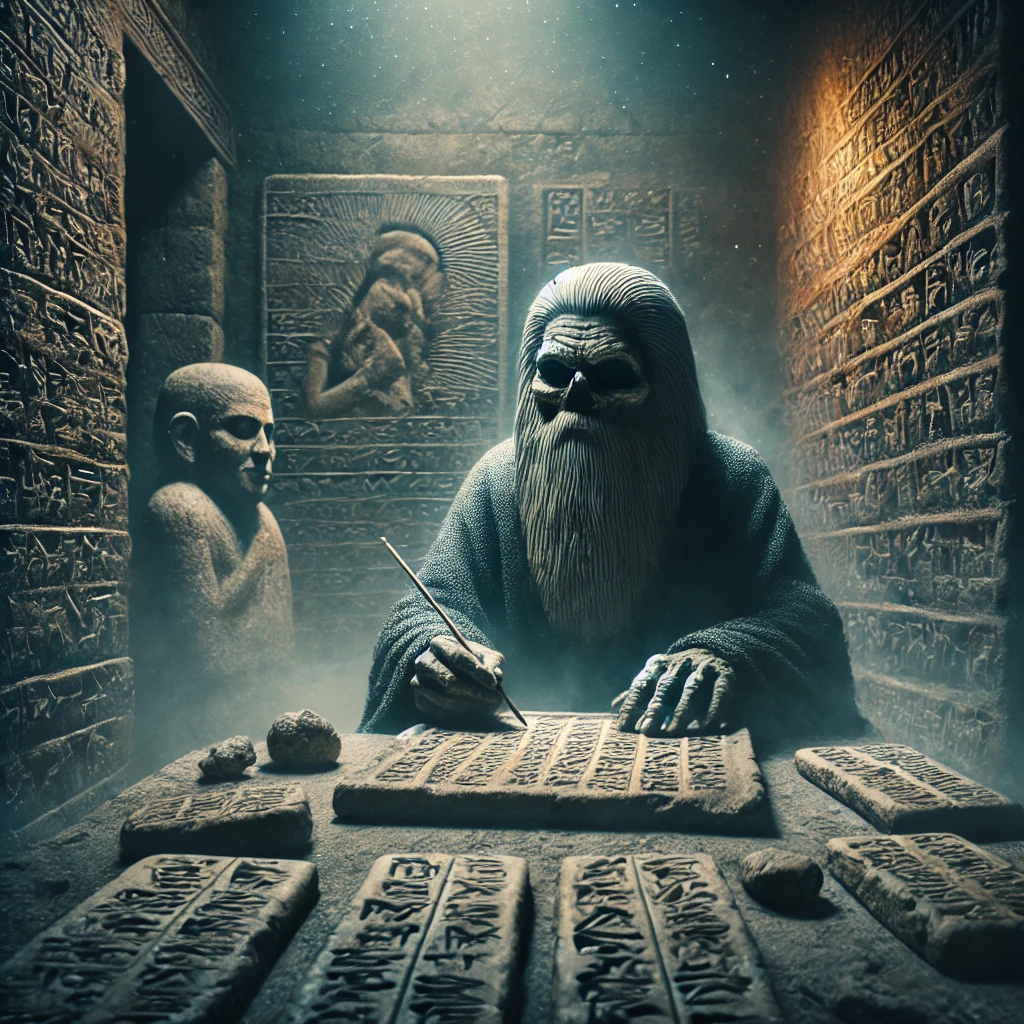In the heart of ancient Mesopotamia, within the great city of Ur, the Sumerians believed that words carried power beyond mere communication—they held the secrets of creation and destruction. This reverence for the written word led to the birth of an art many feared and few dared to learn: the art of curses.
The legend speaks of Alulim, a scribe whose skills were unmatched. Alulim knew the words that could awaken the god of storms, Enlil, and draw the attention of the gods who dwelled above and below. With his reed stylus and a sacred clay tablet, he would carefully craft his curses, weaving words to protect the temples or strike fear into thieves and traitors. But Alulim kept a dark secret; he carried a curse of his own—a “curse of silence.” Rumor whispered that this malediction was punishment for overstepping his bounds, for he had dared to speak to a god with forbidden words.
As the story goes, Alulim could no longer speak to humans; his words would be swallowed by the air, vanishing into silence. Unable to lift the curse on himself, Alulim grew resentful and sought retribution by inscribing curses of unimaginable potency. One such curse became infamous: the “Curse of Forgotten Memory,” a curse that erased all knowledge from the mind of its victim, leaving them as empty as a clay tablet before the first stroke of a stylus.
Alulim cast this curse upon a nobleman who had betrayed him. Within days, the man wandered the city of Ur in a daze, his mind blank, forgetting his own name, his family, his wealth, and even his purpose. The curse spread fear throughout Ur, drawing the attention of the high priestess. She knew only one thing could undo Alulim’s dark power: the name of the god who first cursed him.
One night, as the city slumbered, the high priestess entered Alulim’s chamber. The scribe was there, silently scrawling curses on clay tablets. But when she demanded the name of the god who cursed him, Alulim only looked at her, his eyes hollow. She understood then that he could not break the curse, for he had forgotten the name of the god himself. The “Curse of Forgotten Memory” had come full circle, claiming even its creator.
Legend has it that his cursed tablets still lie buried beneath Ur’s ruins, inscribed with powerful curses for any who dare disturb them. Those who seek to unravel their mysteries face not only the loss of their memory but also the silence that Alulim endured—a silence that still whispers across Mesopotamia with the weight of forbidden words.
